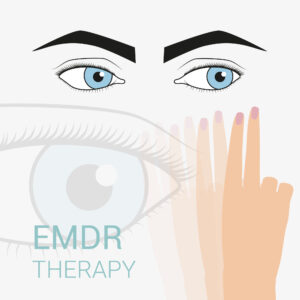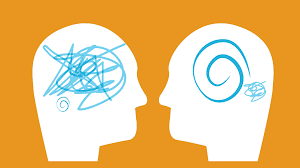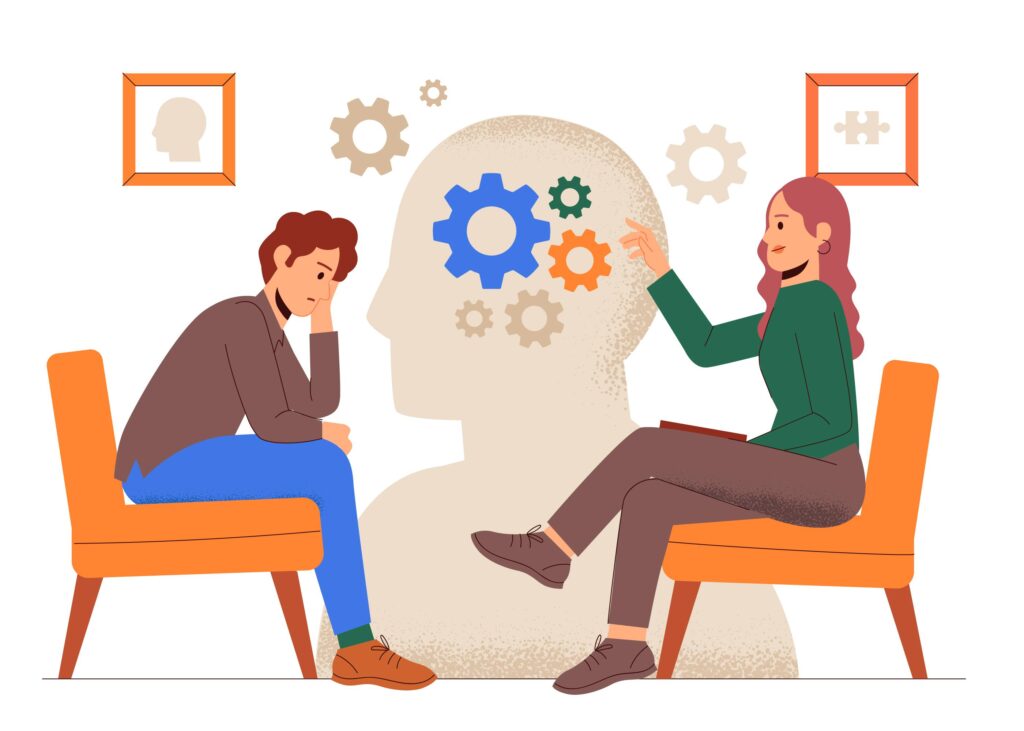EMDR is an abbreviation for Eye Movement Desensitization and Reprocessing, and it is a type of therapy that is very effective in treating trauma. In this blog post, we will discuss what EMDR therapy is, how it works, and some of the benefits that it can provide.
Contents
What Is EMDR Therapy?

EMDR therapy is a type of therapy that uses eye movements to help the brain process and heal from trauma. It is a very effective form of therapy for treating PTSD, anxiety, and other mental health conditions. It is a psychotherapy that enables people to heal from the symptoms and emotional distress that are the result of disturbing life experiences.
Instead of indulging in talk therapy or prescribing medication, this approach involves the use of eye movements to redirect negative emotions healthily and positively.
How Does EMDR Therapy Work?
EMDR therapy works by helping the brain to process and heal from trauma. When you experience a traumatic event, your brain becomes overwhelmed and unable to process the information correctly.
EMDR therapy uses eye movements to help the brain process the trauma properly. An average EMDR focused session takes up to 60-90 minutes. The therapist will guide the patient’s eyes back and forth while they are talking about the trauma. This helps the brain to process and heal from the trauma more effectively.
Eight Phases Of EMDR Therapy

This therapy is carried on in 8 elaborate and systematic stages.
History And Treatment Planning
This stage involves rapport building and ensuring the client feels safe and comfortable with the therapist. This builds a sense of trust between the therapist and the client. It also provides for planning an effective treatment action.
Preparation
In this phase, the therapist tests the client’s tolerance to a negative exposure, which moreover helps in establishing the groundwork for treatment. They also teach various coping skills beforehand on the occasion of facing extremely high stressors.
Assessment
The therapist works toward identifying the target memories and emotional stressors. This involves questions about which thoughts and memories have a trigger that arouses negative feelings.
Desensitization
This phase involves the rational evaluation of events and memories. The therapist works towards changing the way the client’s brain associates with the trauma. This happens when the client is asked to focus on a negative thought while making eye movements through bilateral stimulation. Depending on the intensity of your trauma response, your therapist may increase the stimulation causing eye movements.
This process helps in reducing the intensity of trauma responses by diverting the attention by associating it with a lighter, less negative stimulus.
Installation
Here, your therapist attempts to install a positive thought process to replace negativity. This process continues till the time the triggering stimuli reduce the negative impacts after each exposure.
For example: if you experienced sexual assault as a child, you can build the resistance to prevent assault and realize your capability to avoid it as an adult.
Body Scan
This process tests the presence of any residual trauma which may still be present subconsciously. After the desensitization and installation, the client is again asked to recall the trauma to monitor any physiological reactions like a raised heartbeat, increased blood pressure, sweating, etc.
Closure
The therapist introduces the client to stress reduction and management techniques to deal with the aftermath of recurring disturbances.
Reevaluation
Your therapist will evaluate the effectiveness of the treatment and the need for further sessions and then plan a follow-up session if needed.
Who Does It Help?
Although any therapeutic approach can be beneficial for any client, EMDR therapy is particularly beneficial for those with traumatic pasts. It also works well for people who find it difficult to be expressive of their feelings.
In a clinical setup, this approach of therapy has been successful in treating disorders such as:
- Post Traumatic Stress Disorder (PTSD)
- Anxiety
- Eating disorders
- Depression
- Addiction
- Psychosis
- Bipolar disorder
- Panic attacks
Benefits of EMDR Therapy

EMDR therapy has proven to be effective, particularly for those suffering from PTSD and unprocessed trauma. Some other evident advantages of this therapy include:
- It helps people process their traumatic memories and move forward emotionally and mentally. The overall speed of trauma recovery is escalated through this process.
- This approach to therapy has proven to be more effective than talk therapy in terms of recovery speed and efficacy. It is also more beneficial for those who have trouble vocalizing their thoughts.
- It enhances your work performance, relationships, creativity as well as health.
- This approach works on transforming your negative thoughts into positives. For instance, it waters down internal thoughts like ‘I can’t do this’ into ‘I am capable and worthy to work on your potential and maximize productivity.
- This process helps an individual unwind and cope with burnout by letting go of stress.
Limitations of EMDR Therapy
EMDR therapy is not right for everyone. It is important to speak with a therapist to see if EMDR therapy is right for you.
- Since it is a relatively new field, there are not enough studies to support its effectiveness and longevity.
- It is also a costly therapy, which might not be accessible to everyone.
- EMDR therapy can also worsen your symptoms if not done correctly.
- If you are considering EMDR therapy, make sure to speak with a therapist who is experienced and certified in this type of therapy.
Conclusion
EMDR therapy can be a very helpful tool for healing from trauma and moving on with your life. Although it is a very recent discovery, it has proven to be effective for treating emotional problems as well as clinical disorders relating to past trauma and bad moods. Please speak with a therapist to see if EMDR therapy is right for you.
A Word From Therapy Mantra
Your mental health — Your psychological, emotional, and social well-being — has an impact on every aspect of your life. Positive mental health essentially allows you to effectively deal with life’s everyday challenges.
At TherapyMantra, we have a team of therapists who provide affordable online therapy to assist you with issues such as depression, anxiety, stress, workplace Issues, addiction, relationship, OCD, LGBTQ, and PTSD. You can book a free therapy or download our free Android or iOS app.


